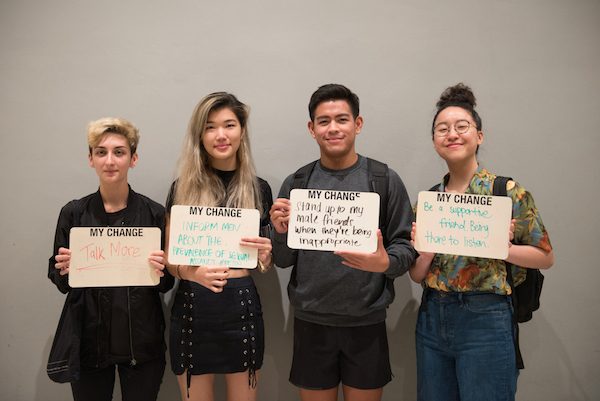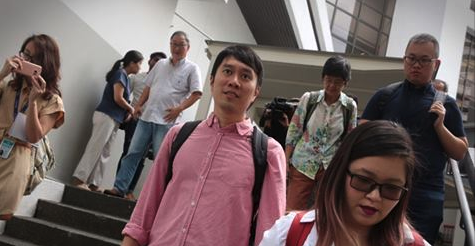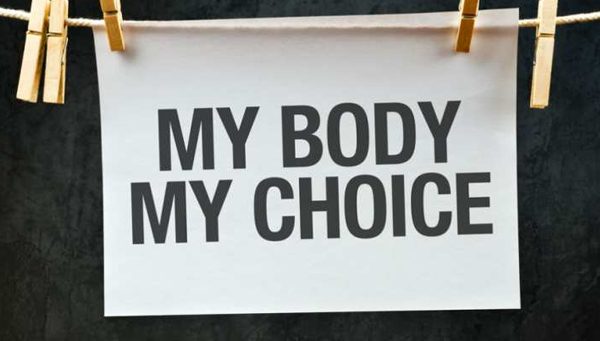This article was originally written for Her World in November 2017, but was unpublished.

In October, prompted in part by events in Hollywood, thousands of women spoke up about sexual assault and harassment from co-workers, family members, partners, teachers and friends; from years ago, or just yesterday. In Singapore, women courageously insisted on these realities, both in the media industry – with Juwon Park’s brave public testimony – and beyond.
In 2016, our Sexual Assault Care Centre assisted 338 survivors, with the largest category of calls about workplace incidents. Few had confidence in employers to support them – Singapore (unlike, say, Hong Kong or London) doesn’t require employers to have proper procedures. Employers are free to punish staff for speaking up or make them sign non-disclosure agreements. Without any assurances, some women simply quit.
Yet sexual harassment is only one facet of workplace gender inequality. Women face an accumulation of gendered obstacles – “death by a thousand cuts” – that make it doubly hard to achieve success. Yes, even in 2018.
Men in the office, women in the kitchen?
The numbers don’t lie: women form a paltry 8% of Singapore’s board directors, and under a third of corporate senior management. Leadership positions are dominated by men, in both the private and public sectors (yes, even with a woman President).
Many turn to women’s family responsibilities for an explanation. Times may have changed – educating daughters is no longer considered wasteful – but raising children, household chores and caring for elderly relatives are still seen by many as “women’s work”.
Almost 270,000 women are out of paid work because of these tasks – compared to under 10,000 men. And more women go part-time or refuse promotions to ensure time for this. Even the favoured solution of some women – employing domestic workers – treats domestic and care work as “women’s work”.
Despite some dads getting more involved, society still generally expects women’s careers to take a backseat instead of asking men to step up their game at home. Workplace policies reflect this, with paternity leave a mere two weeks. Inflexible work hours are designed around the idea of a male worker whose wife can handle household matters and school holidays. Women with family responsibilities may have a harder time competing.
Some argue this is just how men and women “naturally” are. But is it? Babies are dressed in “Cute like mummy, smart like daddy” onesies before they’re out of nappies. Are toddler boys often given toy kitchens and plastic vacuum cleaners? How many picture books show stay-at-home dads? Come back and talk to me about what’s “natural” when we’ve stopped forcing gender stereotypes on kids who can’t even walk.
Bias is real
Yet “work-life balance” is only part of the picture. We don’t like to admit it, in “meritocratic” Singapore, but bias is real. Conscious or unconscious, bias affects how women are evaluated.
Researchers in Boston found that when men suggested solutions to problems at work, it enhanced the perception of them as leaders – but women who did this did not receive the same benefit. Another researcher created two fictitious resumes, identical except for the names, and sent them to potential employers across the US. “Jennifer” was seen as significantly less competent than “John”. She received fewer offers of employment or mentorship, and a 13% lower salary.
These studies were done in America, but the story is familiar. In Singapore, in one survey, 71% of HR managers in medium-sized firms said “societal perceptions of women” hold women back. Women are interrupted when they speak, and aren’t given due credit for their ideas. Some are given less prestigious assignments, by bosses who assume that women, especially mothers, can’t handle tough jobs.
Women also tiptoe through a complicated minefield of stereotypes. An assertive man may be seen as both competent and likeable, but women are more likely to get dismissed as either “aggressive” or “weak”. Similarly, a man who speaks about his children gets seen as more approachable and human – but a woman risks being sidelined by stereotypes about mothers.
Stereotypes can be especially tricky when expressed as humour. Jokes about “woman bosses” set up a trap: how can an environment support women in leadership if it is a caricature to laugh at? Yet to point this out may be dismissed as uptight. In an unsupportive environment, it’s no wonder that some women end up second guessing ourselves.
In 2014, the CEO of a statutory board sent all his staff an email about how the “complex nature of women” creates “communication barriers” so women cannot “compete or co-labour with the men”. He faced some public embarrassment but no formal consequences. There is a clear gap in our laws and policies, where no employer – or even the government – has to act even the most clearcut cases of gender bias.
Time to fix this
The good news is, we can fix this. Catalyse Consulting, AWARE’s corporate training arm, has helped clients to educate their teams about unconscious bias, diversity and inclusion and addressing workplace harassment. Thoughtful changes to training, recruitment and evaluation practices can go a long way to countering the effects of bias, including unconscious bias. This allows employers to reap the benefits of supporting all talent.
Our society needs to set standards for all workers to be treated fairly. Singapore has in fact promised – by joining the global treaty, CEDAW – to eliminate all discrimination against women. So why does no law require employers to treat their staff equally? Women shouldn’t have to swallow insults to self-esteem in order to make a living or rise in their professions.
Creating a fairer society is a job for all of us. What are our own prejudices? How can we encourage future generations to truly support equality? We need to open this conversation and face the issue of bias squarely, instead of pretending it isn’t real.
You want to see things change for the better? Me too.
Write to info@catalyse.sg to bring a Catalyse Consulting workshop to your workplace.
If you need a listening ear, call the Women’s Helpline at 1800 777 5555 (Mon-Fri, 3pm-9.30pm).
If you have experienced sexual violence, call the Sexual Assault Care Centre at 6779 0282 (Mon-Fri, 10am-midnight).







 On 25 November, in line with the International Day for the Elimination of Violence against Women, more than 70 people attended a roundtable on violence against women in Singapore, and listened to firsthand accounts from three survivors about their personal experiences and recovery from sexual violence.
On 25 November, in line with the International Day for the Elimination of Violence against Women, more than 70 people attended a roundtable on violence against women in Singapore, and listened to firsthand accounts from three survivors about their personal experiences and recovery from sexual violence. Single parents who signed a parliamentary petition urging reform of public housing policies are disappointed with the lack of action by policy-makers.
Single parents who signed a parliamentary petition urging reform of public housing policies are disappointed with the lack of action by policy-makers.


